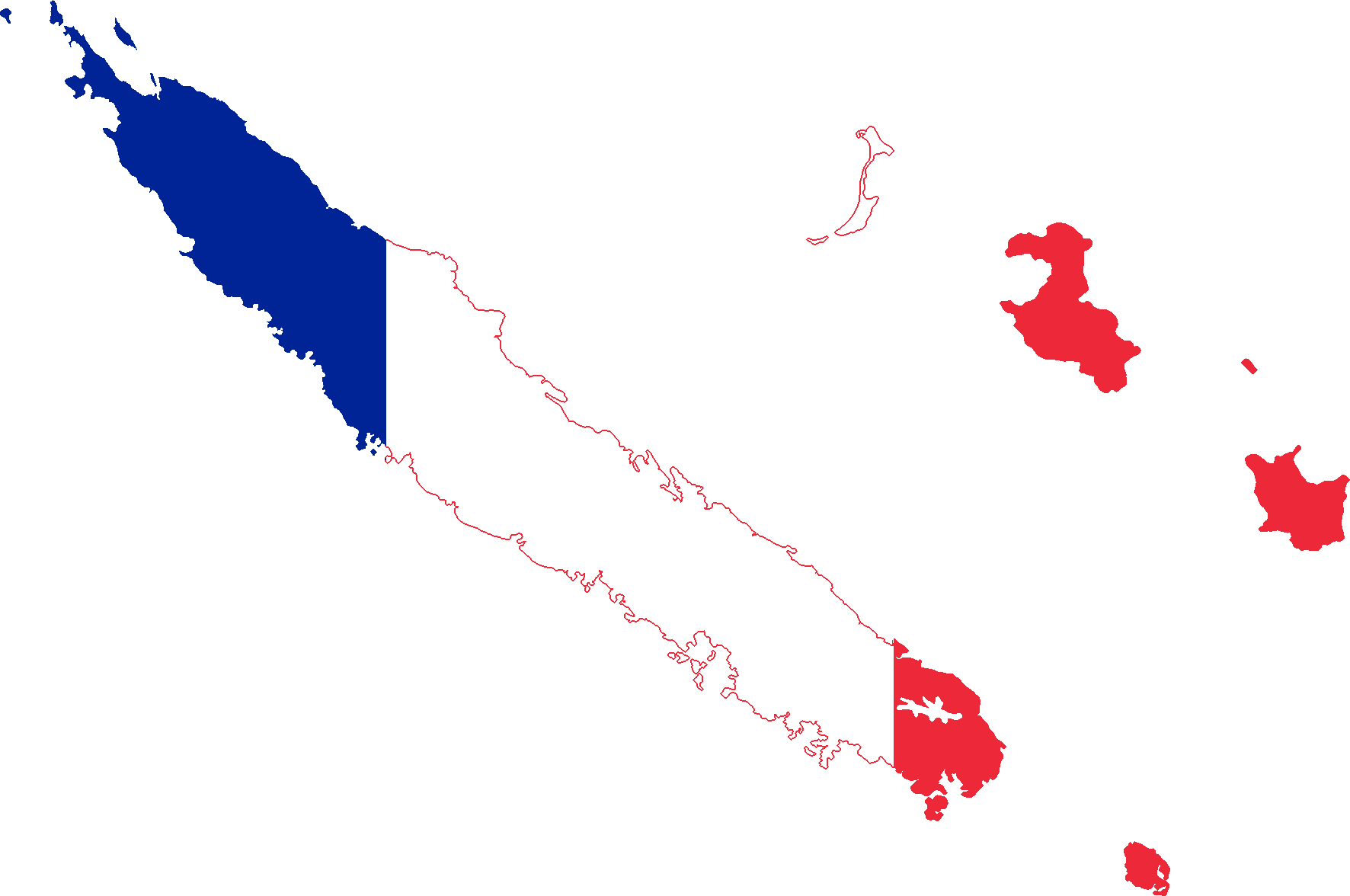New Caledonia just held a referendum on independence. The results are in, and to say that the anti-independence camp dominated this referendum would be an understatement: over 90 % have said no to independence and seeing that this is the final time to vote on the matter for now, New Caledonia shall remain French for the time being. President Macron has been happy with the result but has also recognised the need to address the disappointed pro-independence camp.
The situation in New Caledonia is as follows: the pro-independence camp is mainly supported by the indigenous people, or Kanaks, who are politically organised around a party called Kanak and Socialist National Liberation Front (FLNKS). The anti-independence camp consists mainly of the French colonialists and their descendants, called the loyalists. Ever since the French arrived in the middle of 19th century, the number of Kanaks has been decreasing while the number of French has been increasing, leading to a situation where the Kanaks were a minority in their own country. Furthermore, the French set up reservations on which the Kanaks were forced to live up until the 1940s. New Caledonia is essentially still a colony, while other overseas regions have been actively incorporated into the Republic. There has been progress since the 1970s but it’s been slow and the Kanaks and the loyalists have ended up settling their differences with violence.
Before the situation exploded into a full-blown civil war, an agreement was made between the French government, the pro-independence camp and the loyalists. This is known as the Nouméa Accord as it was signed in Nouméa, the capital of New Caledonia, in 1998. The main content of the accord is that there will be at least two referenda on independence after a 20-year-long transition period. A third referendum may be held if the local parliament of New Caledonia votes for one. After this a referendum on the accord was held, in which almost 72 % of the New Caledonians approved the document.
If you think you have heard about this a couple of years ago, you’re right. The first two referenda on independence were held in 2018 and 2020, and both times the anti-independence block won by a slight margin. The final referendum was due to take place no later than in 2022, meaning that the scheduling checks out legally and is in line with the Nouméa Accord.
So what were the arguments for and against independence? The Kanaks argue that independence is the natural next step in the process of decolonisation. And since the Kanaks have been marginalised since the arrival of the French, they make a good point. Also, the huge profits from the region’s considerable nickel mining (around 17 000 tons in 2020) should go to the benefit of the locals. The loyalists argue that since the majority of New Caledonia’s money comes from Paris as subsidies, the territory would be doomed economically at least when the nickel runs out. And wherever there are huge amounts of valuable natural resources, there’s of course China stalking. By voting no to independence, the loyalists hope to block the Chinese Communist Party from becoming simply the new colonisers in the region and save New Caledonia from a debt trap.
In October 2021, the pro-independence camp announced that it will boycott the referendum and its results. The reason stated was the Kanak people are still in the middle of their traditional mourning rites that they must observe due to the deaths from the corona virus. Considering how many voters actually followed through, the anti-independence camp is basically campaigning alone and with no adversaries. Other Melanesian countries such as Vanuatu, Fiji and the Solomon Islands have expressed their support to the Kanaks and have also called not to recognise the result. The turnout in the referendum was greatly influenced by the boycott: In the northern part of the main island, where the majority of the population is Kanak, the turnout was just 16.6 %. Meanwhile in the south, it was 60.9 %. Even though the election result is clear and all three referenda have been exhausted, it would be wrong to assume that this is over. The French minister responsible for the overseas affairs has planned a trip to New Caledonia and the Macron administration has announced its plans to start working together with the loyalists and the Kanaks. One key aspect of this is to start granting progressively more autonomy to New Caledonia in order to show that the age of colonialism is long gone. A referendum on the matter is expected to be held in 2023. This is something Paris has done with e.g. French Polynesia and their independence movement is pretty negligible. One area of negotiations will be the Kanak language rights: the only official language of any French territory is always French but local languages can be recognised regionally. In the case of New Caledonia, however, there are 35 languages spoken and most have just a few thousand speakers. French is the means of communication in this multilingual environment and since the New Caledonians are French citizens, knowing French remains a necessity if a person ever moves to other parts of France.

